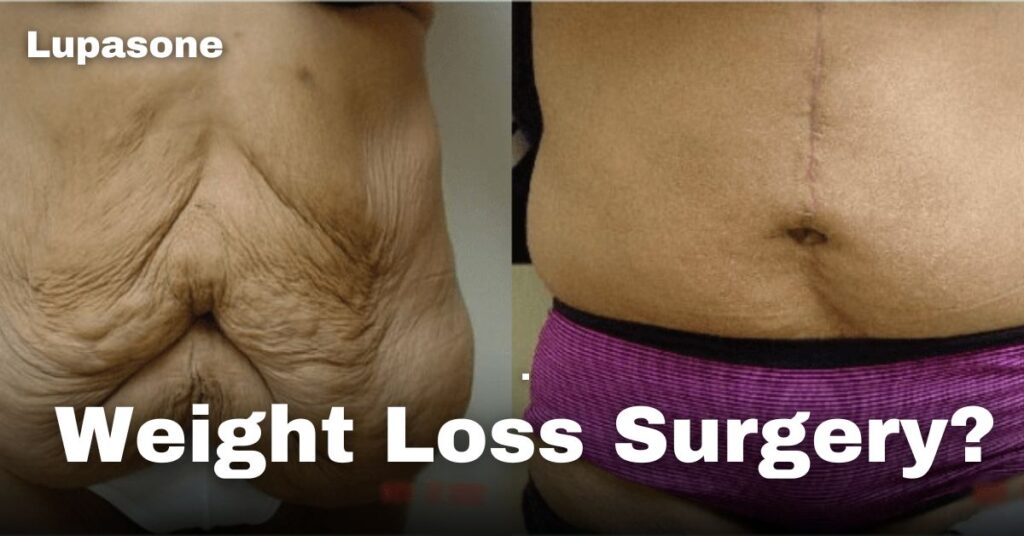
Contents
- 1 Introduction
- 2 What is Weight Loss Surgery?
- 3 Eligibility Criteria for Weight Loss Surgery
- 4 Taking the Quiz: Do You Qualify for Weight Loss Surgery?
- 5 What to Do If You Don’t Qualify for Weight Loss Surgery?
- 6 Why a Quiz Can Help You Decide on Weight Loss Surgery
- 7 Frequently Asked Questions About Weight Loss Surgery
- 7.1 What is the minimum BMI for weight loss surgery?
- 7.2 Can I still qualify for surgery if I don’t have obesity-related health issues?
- 7.3 How long does the weight loss surgery process take?
- 7.4 What happens if I don’t qualify for surgery now, but my health changes later?
- 7.5 Is weight loss surgery covered by insurance?
- 7.6 What are the main risks of weight loss surgery?
- 8 Conclusion
- 9 Takeaway Points
Introduction
The increasing prevalence of obesity has led to a growing interest in weight loss surgeries as a potential solution. Procedures like gastric bypass, gastric sleeve, and lap band have gained popularity among individuals struggling to achieve and maintain a healthy weight. However, it’s important to understand that not everyone is a suitable candidate for these Weight Loss Surgery.
This comprehensive guide aims to provide a clear understanding of the factors that determine eligibility for weight loss surgery. By taking the quiz, you can gain valuable insights into your candidacy and make informed decisions about your weight loss journey.
What is Weight Loss Surgery?
Overview of Common Weight Loss Surgeries
Weight loss surgery, also known as bariatric surgery, involves surgical procedures to reduce the stomach’s size or alter the way food is processed. Improved health and weight loss may result from this.
Among the most popular kinds of weight loss surgery are:
- Gastric bypass: Bypassing a section of the small intestine, a small pouch is created in the stomach during this procedure.
- Gastric sleeve: This procedure involves removing a large portion of the stomach, creating a smaller, tubular-shaped stomach.
- Lap band surgery: In order to limit food intake, this procedure entails wrapping a band around the upper portion of the stomach.
How Do These Surgeries Help with Weight Loss?
Weight loss surgeries work by reducing the amount of food you can eat and altering how your body absorbs nutrients. This can lead to significant weight loss and improved health outcomes.
Who Benefits from Weight Loss Surgery?
Weight loss surgery is typically considered for individuals who have a body mass index (BMI) of 40 or higher or a BMI of 35 or higher with a weight-related health condition, such as diabetes or high blood pressure. These surgeries can be a valuable option for those who have struggled to lose weight through diet and exercise alone.
Eligibility Criteria for Weight Loss Surgery

Body Mass Index (BMI) Requirements
To be considered for weight loss surgery, you typically need to have a high body mass index (BMI). Most surgeons require a BMI of 40 or higher. However, if you have a BMI of 35 or higher and also have a weight-related health condition, such as diabetes or sleep apnea, you may be eligible.
Health Conditions and Co-Morbidities
Having certain health conditions can also increase your chances of qualifying for weight loss surgery. These conditions may include:
- Type 2 diabetes
- High blood pressure
- Sleep apnea
- Heart disease
- Severe acid reflux
Psychological Evaluation
Before undergoing weight loss surgery, you will likely need to undergo a psychological evaluation. This is to ensure that you are mentally and emotionally prepared for the surgery and the lifestyle changes that will be required after the procedure.
Failed Attempts at Traditional Weight Loss Methods
Weight loss surgery is typically considered a last resort after you have tried and failed to lose weight through diet and exercise. If you have exhausted other options and continue to struggle with obesity, surgery may be a viable solution.
Taking the Quiz: Do You Qualify for Weight Loss Surgery?
How the Quiz Works
This quiz is designed to help you assess whether you may be a candidate for weight loss surgery. It will ask you a series of questions about your weight, health conditions, and previous attempts at weight loss. By answering these questions honestly, you can get a better understanding of your eligibility.
Key Questions in the Quiz
Here are some examples of the questions you may encounter in the quiz:
- What is your current weight and height?
- Have you been diagnosed with obesity or a related health condition, such as diabetes or sleep apnea?
- Have you tried to lose weight through diet and exercise in the past? If so, how successful were your efforts?
- Are you prepared to make significant lifestyle changes, including dietary adjustments and regular exercise, after surgery?
Understanding Your Results
Once you complete the quiz, you will receive a score that indicates your potential eligibility for weight loss surgery. However, it’s important to remember that this quiz is not a substitute for professional medical advice.
If the quiz suggests that you may be a candidate, the next step is to consult with a qualified healthcare provider. They can conduct a thorough evaluation to determine if weight loss surgery is the right option for you.
Remember: Even if you score high on this quiz, it’s essential to have a detailed consultation with a surgeon to discuss your specific circumstances and determine the best course of action.
What to Do If You Don’t Qualify for Weight Loss Surgery?
Explore Non-Surgical Weight Loss Options
If you don’t meet the eligibility criteria for weight loss surgery, there are still many effective ways to achieve your weight loss goals. Consider exploring these options:
- Medications: Your doctor may prescribe weight loss medications to help you lose weight.
- Diet plans: A registered dietitian can help you create a personalized diet plan that will help you reach your weight loss goals.
- Lifestyle coaching: A lifestyle coach can provide you with support and guidance to help you make healthy lifestyle changes.
Revisiting Your Eligibility in the Future
If you don’t qualify for weight loss surgery now, it’s possible that your eligibility may change in the future. By making healthy lifestyle choices and working with your healthcare provider, you may be able to improve your health and increase your chances of qualifying for surgery in the future.
Psychological and Lifestyle Changes
Even if you don’t qualify for weight loss surgery, it’s important to focus on making healthy lifestyle changes. This can include eating a balanced diet, exercising regularly, and managing stress. You may also benefit from seeking support from a therapist or counselor to help you address any emotional or psychological factors that may be contributing to your weight challenges.
Remember, there are many ways to achieve your weight loss goals, even if surgery is not an option for you. By making healthy choices and seeking support, you can improve your overall health and well-being.
Why a Quiz Can Help You Decide on Weight Loss Surgery
A Personalized Approach
Taking a quiz to assess your eligibility for weight loss surgery can provide a personalized approach to your weight management journey. By answering a series of questions about your health, weight, and lifestyle, you can get a better understanding of your potential candidacy without having to schedule a consultation with a healthcare provider.
Save Time and Money
If you don’t meet the basic eligibility criteria for weight loss surgery, taking a quiz can save you time and money by avoiding unnecessary consultations with specialists. This can be particularly helpful if you’re unsure about your eligibility and want to explore other options for weight loss.
Informed Decision-Making
By taking this quiz, you can gather valuable information to make an informed decision about your weight loss goals. Understanding your eligibility for weight loss surgery can help you set realistic expectations and explore alternative options if needed.
Remember, while this quiz can provide insights, it’s essential to consult with a qualified healthcare provider for a comprehensive evaluation and personalized guidance.
Frequently Asked Questions About Weight Loss Surgery
What is the minimum BMI for weight loss surgery?
Typically, the minimum BMI requirement for weight loss surgery is 35 or higher, or 30 or higher with obesity-related health conditions. However, these requirements can vary depending on the specific surgeon and healthcare provider.
While having obesity-related health conditions can increase your chances of qualifying for surgery, it’s not always a strict requirement. If you have a BMI of 40 or higher, you may still be considered a candidate.
How long does the weight loss surgery process take?
The entire process, from initial consultation to surgery and recovery, can take several months. The exact timeline will depend on your individual circumstances and the type of surgery you choose.
What happens if I don’t qualify for surgery now, but my health changes later?
If you don’t meet the eligibility criteria for surgery now, you can continue to monitor your health and weight. If your circumstances change, you may be able to re-evaluate your options in the future.
Is weight loss surgery covered by insurance?
Whether your insurance covers weight loss surgery depends on your specific plan. Some insurance providers may cover these procedures, especially if you have obesity-related health conditions. It’s important to check with your insurance company to determine your coverage.
What are the main risks of weight loss surgery?
As with any surgical procedure, weight loss surgery carries some risks. These may include:
- Bleeding
- Infection
- Blood clots
- Leaky stomach pouch (in gastric bypass)
- Nutrient deficiencies
It’s important to discuss these risks with your surgeon before making a decision.
Conclusion
Understanding your eligibility for weight loss surgery is crucial before making any decisions. This quiz has provided you with valuable information about the key factors that determine candidacy.
If you believe you may be a candidate, the next step is to consult with a qualified healthcare provider. They can conduct a thorough evaluation and provide personalized guidance based on your specific circumstances.
Remember, weight loss surgery is a significant decision, and it’s important to weigh the potential benefits and risks carefully. By taking this quiz and seeking professional advice, you can make an informed choice about your weight loss journey.
Takeaway Points
This quiz has provided you with a valuable tool to assess your potential eligibility for weight loss surgery. By understanding the key criteria and answering the questions honestly, you can gain a better understanding of your candidacy.
Remember, this quiz is just a starting point. It’s essential to consult with a qualified healthcare provider for a thorough evaluation and personalized guidance. They can provide you with more information about the surgery, potential risks and benefits, and help you determine the best course of action for your weight loss journey.
Visit Home For More Articles
Recommended






